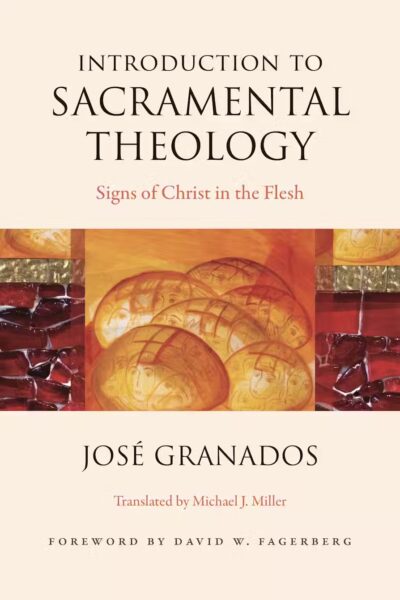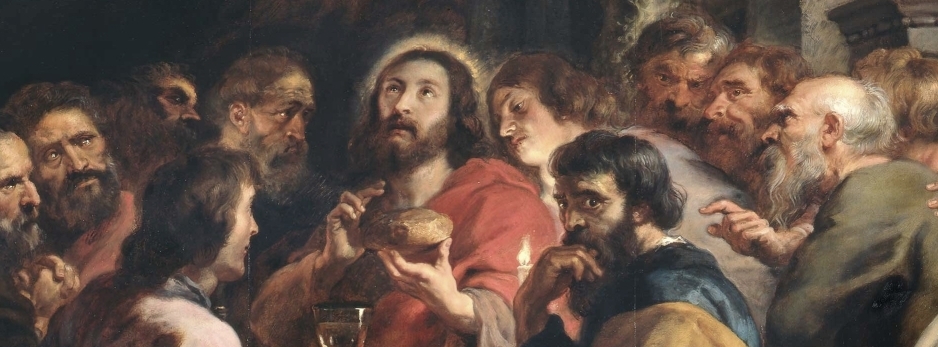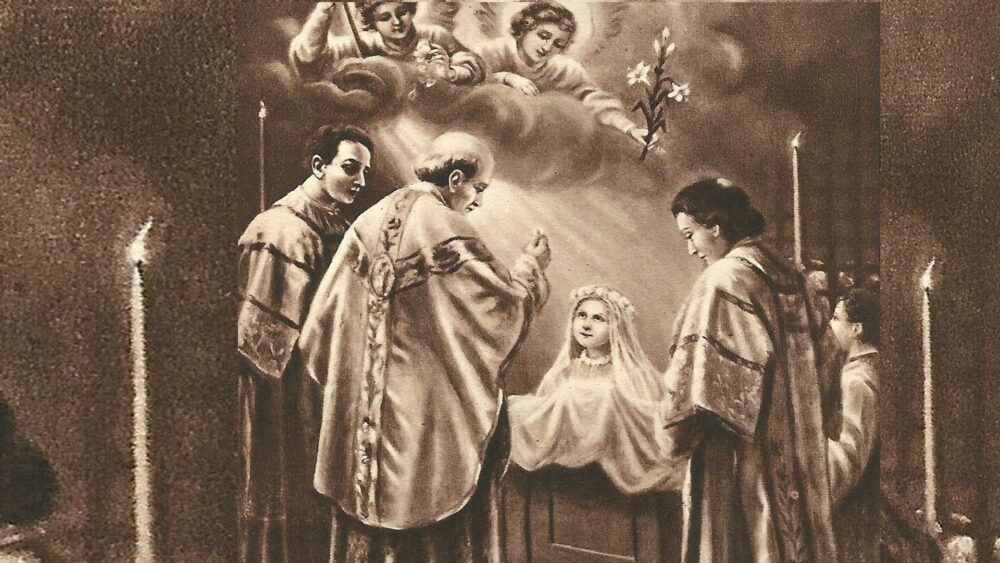 “Introduction to Sacramental Theology” by José Granados presents a complete overview of sacramental theology from the viewpoint of the body. This viewpoint is supported, in the first place, by Revelation, for which the sacraments are the place where we enter into contact with the body of the risen Jesus. It is a viewpoint, secondly, which is firmly rooted in our concrete human bodily experience, thus allowing for a strong connection between faith and life, creation and redemption.
“Introduction to Sacramental Theology” by José Granados presents a complete overview of sacramental theology from the viewpoint of the body. This viewpoint is supported, in the first place, by Revelation, for which the sacraments are the place where we enter into contact with the body of the risen Jesus. It is a viewpoint, secondly, which is firmly rooted in our concrete human bodily experience, thus allowing for a strong connection between faith and life, creation and redemption.
From this point of view, the treatise on the sacraments occupies a strategic role. For the sacraments appear, not as the last of a series of topics (after dealing with Creation, Christ, the Church), but as the original place in which to stand in order to contemplate the entire Christian mystery. This point of view of the body, which resonates with contemporary philosophy, sheds fruitful light on classical themes, such as the relationship of the sacraments with creation, the composition of the sacramental sign, the efficacy of the sacraments, the sacramental character, the role of the minister, or the relationship of the sacrament with the Church as a sacrament.
As a result of this approach, the Eucharist takes on a central role, since this is the sacrament where the body of Jesus is made present. The rest of the sacraments are seen as prolongations of the eucharistic body, so as to fill all the time and space of the faithful. This foundation of the theology of the sacraments in eucharistic theology is supported by an analysis of the patristic and medieval tradition.
In order to support its conclusions, Introduction to Sacramental Theology examines the doctrine of Scripture (especially St. John and St. Paul), the main patristic and medieval authors (St. Augustine, Hugh of St. Victor, St. Bonaventure, St. Thomas Aquinas), the response of Trent to the protestant challenges, up to modern authors such as Scheeben, Rahner, Ratzinger, or Chauvet, including the teaching of Vatican II about the Church as a kind of sacrament.
 José Granados is a Dogmatic Theologian and co-founder of the Veritas Amoris Project. He lectures at the St. John Vianney Theological Seminary. Between 2010 and 2020 he taught as Ordinary Professor of Dogmatic Theology of Marriage and Family at the Pontifical John Paul II Institute for Studies on Marriage and Family in Rome, of which he was Vice President. Between 2004 and 2009 he was professor of theology at the Washington, DC section of the same Institute. He is the author of numerous publications.
José Granados is a Dogmatic Theologian and co-founder of the Veritas Amoris Project. He lectures at the St. John Vianney Theological Seminary. Between 2010 and 2020 he taught as Ordinary Professor of Dogmatic Theology of Marriage and Family at the Pontifical John Paul II Institute for Studies on Marriage and Family in Rome, of which he was Vice President. Between 2004 and 2009 he was professor of theology at the Washington, DC section of the same Institute. He is the author of numerous publications.
“Granados offers a new approach to the study of the sacraments based on theological principles such as sacraments noted in the flesh of Christ and sacraments as key for the whole of theology. The scholarship is sound and the use of sources is abundant. Will appeal to anyone interested in a serious study of the sacraments.”
~Daniel Cardo, Benedict XVI Chair for Liturgical Studies, St. John Vianney Seminary
“In this erudite study, José Granados mines the Scriptures, especially John and Paul, as well as classical loci like Augustine, the medievals, the Reformation, and moderns like Rahner and Chauvet to bring fresh resources to sacramental theology. By rooting it in the eucharistic body of Jesus, the sevenfold media of grace become a ‘symbolic space.’ In it, the incarnate Lord melds the ritual economy of the Trinity with the human person saved, not only in the soul but in and through the flesh. Now happily available to the Anglophone audience, this book is magisterial in its historical survey and innovative in its contemporary synthesis.”
~Stephen M. Fields, SJ, Georgetown University
“This is more than an introductory text. It is more, in fact, than a mere treatise or theology of the sacraments. It is theology done sacramentally–at once scriptural, mystagogical, and systematic. The author draws masterfully from the Old Testament and the New, from the Eastern and Western Fathers, from the medievals and the moderns…. The sweep of this book is breathtaking and comprehensive. It opens up the complete sacramentality of Christian life.”
~Scott Hahn, author of The Fourth Cup: Unveiling the Mystery of the Last Supper and the Cross and President of the St. Paul Center
“Fr. José Granados has managed to interweave Patristic and scholastic ideas with the best of twentieth- century sacramental theology, and he presents this brilliant synthesis in words that are a pleasure to read….. This work of Fr. Granados is not only sound theology but it is sound theology composed in the context of the high Christian culture of old Catholic Europe.”
~Tracey Rowland, University of Notre Dame (Australia)
“A profound and comprehensive study of the sacraments! Presented from the point of view of the body, Fr. Granados uncovers new depths of meaning in the Church’s teaching about the sacramental life. As is his custom, he fully engages contemporary experience while drawing deeply from Scripture and the patristic-medieval theological tradition.”
~David L. Schindler, Pontifical John Paul II Institute for Studies on Marriage and Family
“Fr. Granados shows how the study of the sacraments can serve as the beginning of Christian theological understanding, not its conclusion, because the sacraments are the point of our original, tangible contact with the mystery of Christ. He examines all the sacraments by relating them to the Eucharist as their paradigm. His book surveys the history of the Church’s sacramental understanding and practice, from biblical times to the present, and it draws on an astounding number of contemporary writings. The book will be immensely informative to catechists and teachers, and it will inspire Christians who wish to deepen their faith.”
~Robert Sokolowski, author of The God of Faith and Reason: Foundations of Christian Theology
“The genius of this book is manifold. Simply, it is the best book written in sacramental theology in the last 50 years. Granados incorporates biblical studies, anthropology, sacramental theology throughout ecclesial history, and cultural analysis. He does so without abandoning theology for ritual studies or reducing theology to hermeneutics (sacrament as mere sign).”
~Antiphon
Share this article
About Us
The Veritas Amoris Project focuses on the truth of love as a key to understanding the mystery of God, the human person and the world, convinced that this perspective provides an integral and fruitful pastoral approach.



